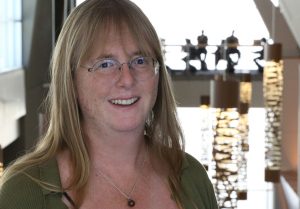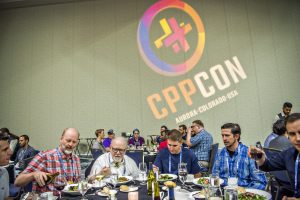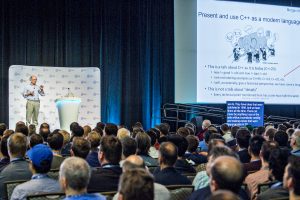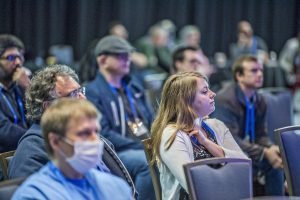We’re happy to announce: Timur Doumler will be in Aurora live, in person to deliver key insights on C++23 best practices.
 Here is the abstract for Timur’s talk:
Here is the abstract for Timur’s talk:
C++20 was a huge release: coroutines, concepts, ranges, and modules profoundly changed the way we write code and think about C++. In comparison, C++23 is a lot smaller in scope: its primary mission is to complete C++20, to fill holes, and to fix issues. Nevertheless, some great new features made the cut this time around, both in the standard library and in the core language. This is even more remarkable considering that the entire feature design phase of C++23 took place during the COVID-19 pandemic, challenging the ISO C++ committee to completely reinvent how we work together.
This is not a firehose talk about C++23 that tries to cram as many additions and improvements as possible into one hour. Instead, we deliberately focus on just a handful of new features that are going to noticeably change and improve the experience of the everyday C++ programmer. We will talk about how `std::expected` improves error handling, the huge impact that `std::mdspan` will have on scientific computing, how deducing `this` greatly simplifies longstanding C++ idioms such as CRTP, and how `std::print` will forever change how we write “Hello, World”.
Timur is the Developer Advocate for C++ tools at JetBrains and an active member of the ISO C++ standard committee. As a developer, he worked many years in the audio and music technology industry and co-founded the music tech startup Cradle. Timur is passionate about building inclusive communities, clean code, good tools, low latency, and the evolution of the C++ language.
Registration is now open. Tickets are now available for both online attendees and in-person attendees.
Register today!

 Here is the abstract for Timur’s talk:
Here is the abstract for Timur’s talk: Here is the abstract for her talk:
Here is the abstract for her talk: The
The  Again this year, CppCon is running a Diversity & Attendance Support Ticket program. These free tickets are for people who would not be able to attend otherwise. This is an open program, but reasons to apply may include financial assistance, that you are part of an underrepresented group in tech, and others.
Again this year, CppCon is running a Diversity & Attendance Support Ticket program. These free tickets are for people who would not be able to attend otherwise. This is an open program, but reasons to apply may include financial assistance, that you are part of an underrepresented group in tech, and others.


 Spend a fun-filled Sunday on September 11th with fellow attendees as explore these alien worlds and enjoy a Denver culinary tradition.
Spend a fun-filled Sunday on September 11th with fellow attendees as explore these alien worlds and enjoy a Denver culinary tradition.
 Erik Rainey will be in Aurora, live in person to deliver a keynote address on C++ in embedded firmware.
Erik Rainey will be in Aurora, live in person to deliver a keynote address on C++ in embedded firmware. This presentation covers what the execution environment of an embedded “superloop” firmware is in order to describe later why certain C++14 language and library features are used and others are not. This environment lacks many basic features and capabilities that traditional C++ programmers may think are common place but is able to be programmed in C++14 (and later) with a specific design paradigms and guidelines. Programmers with deeply embedded C experience will be familiar with some of the limitations of the environment but may find the C++ solutions quite refreshing! The talk will conclude with some comments on C++17 / C++20 features which will be quite valuable to embedded environments of all types.
This presentation covers what the execution environment of an embedded “superloop” firmware is in order to describe later why certain C++14 language and library features are used and others are not. This environment lacks many basic features and capabilities that traditional C++ programmers may think are common place but is able to be programmed in C++14 (and later) with a specific design paradigms and guidelines. Programmers with deeply embedded C experience will be familiar with some of the limitations of the environment but may find the C++ solutions quite refreshing! The talk will conclude with some comments on C++17 / C++20 features which will be quite valuable to embedded environments of all types.